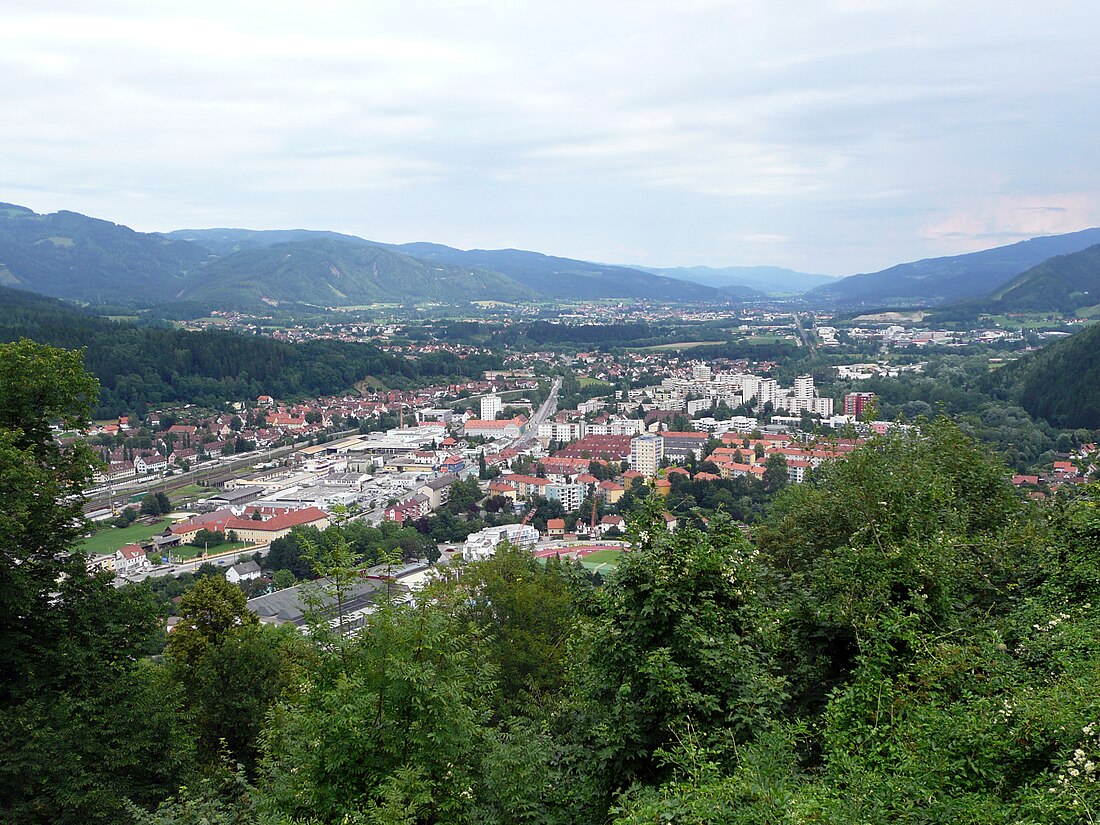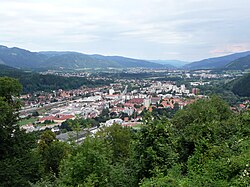Top Qs
Timeline
Chat
Perspective
Kapfenberg
Municipality in Styria, Austria From Wikipedia, the free encyclopedia
Remove ads
Kapfenberg ([ˈkapfənbɛʁk]) is a city in the Bruck-Mürzzuschlag district of the Austrian state of Styria. It lies in the valley of the Mürz river in central Austria. With an estimated population of 22,080 individuals in 2024, it is the third largest city in Styria. The 13th century Oberkapfenberg castle hosts the annual Ritterfest ("knights festival").
Remove ads
Geography
Kapfenberg is a city in the Bruck-Mürzzuschlag district of the Austrian state of Styria.[3][4] It lies in the valley of the Mürz river near the Eastern Alps.[5][6] The city incorporates 15 settlements, the largest of which is Hafendorf.[7]
The Oberkapfenberg castle near the town was built in the 12th century by the Lords of Stubenberg and expanded in the 15th century. The castle went to a dilapidated condition in the 17th century before being restored in the 19th century. In 1992, it was purchased by the municipality of Kapfenberg, and it hosts the annual Ritterfest ("knights festival").[8]
Remove ads
Demographics
With an estimated population of 22,080 individuals in 2024,[3] it is the third largest city in Styria.[9][10] The population consisted of 10,901 males and 11,179 females, while 3,405 inhabitants (15.4%) were under the age of seventeen. Apart from Austrians, who make up nearly 78% of the population, the town also had a significant proportion of people from other countries majorly from Switzerland.[2] The town is a major steel production center, with the stainless steel factory operated by manufacturer voestalpine having an annual capacity of 205,000 tonnes.[11]
Remove ads
Sports
The Franz Fekete Stadium is a 12,000 seater football stadium in the city. Inaugurated in 1950, it is home to the Austrian Bundesliga club Kapfenberger SV.[12][13] Formed in 1976, the Kapfenberg Bulls is a team in the Österreichische Basketball Bundesliga, the highest professional basketball league in Austria.[14] In 1970, Kapfenberg hosted the European Team Chess Championship, which was won by the Soviet Union.[15]
Notable people
- Ernst Kovacic (born 1943), violinist and conductor[16]
- Melitta Breznik (born 1961), doctor and writer[17]
- Peter Nehr (born 1952), American politician[18]
- Peter Pilz (born 1954), politician[19]
- Ruth Feldgrill-Zankel (born 1942), politician[20]
- Ulrike Diebold (born 1961), physicist and materials scientist[21]
References
External links
Wikiwand - on
Seamless Wikipedia browsing. On steroids.
Remove ads



